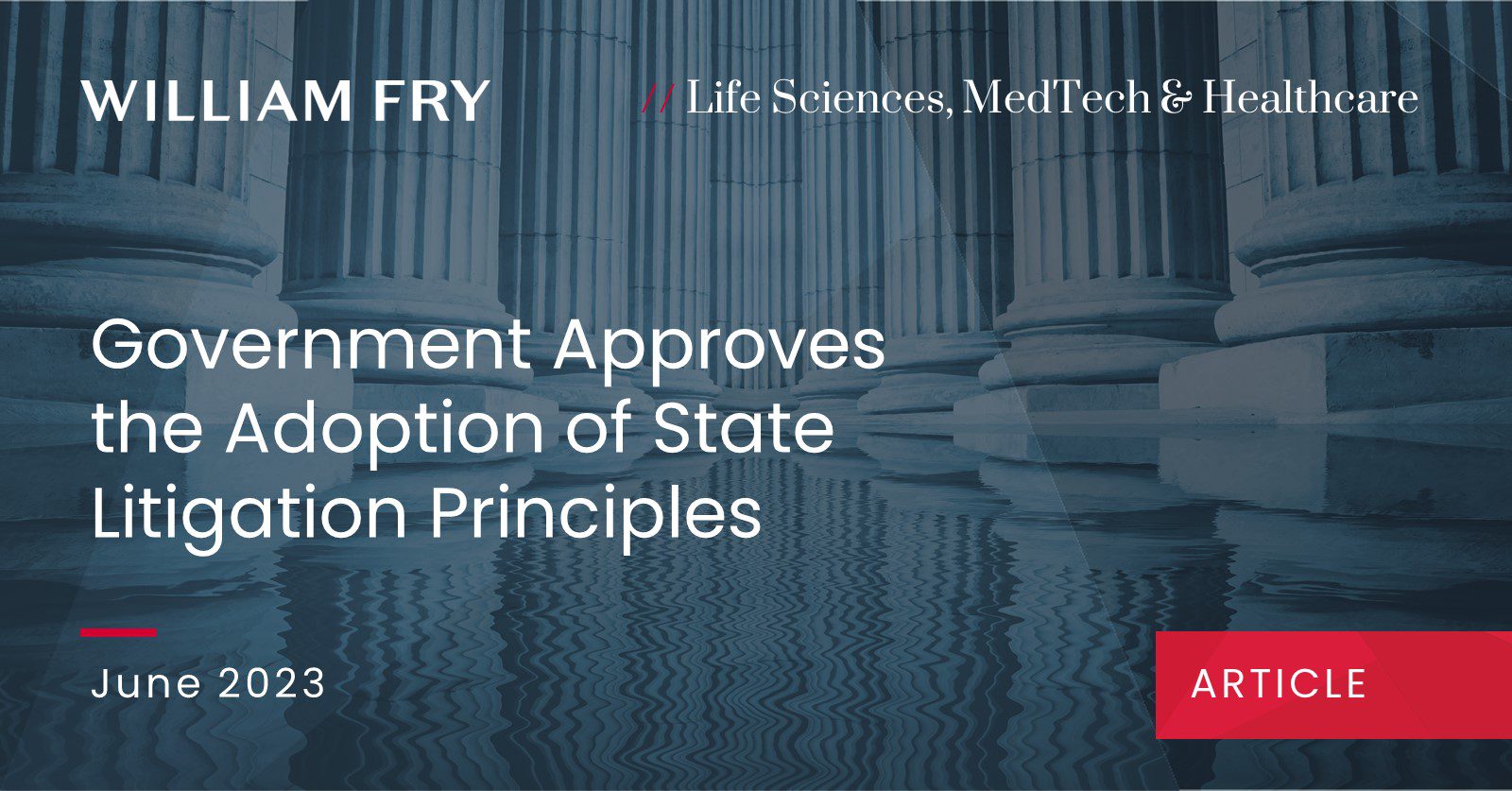The government has approved the State Litigation Principles, which are intended to act as guidelines in the conduct of litigation by the State (Principles).
An accompanying press release states that The Principles, apply where the State (through the Government, a Minister of the Government, a Department of State or an agency under its direct control) engages in litigation.
In his speech on 21 June, Attorney General Rossa Fanning SC summarised the intention behind the codification of best practice as follows:
Quite simply, the State should act in the public interest, broadly construed, in pursuing litigation and should consider this broader public interest before taking certain procedural steps in litigation. In drafting the Principles, I have had regard for the best endeavours that the State must strive to make in fulfilling the very high standards which are expected of its conduct.
The Principles will be of particular interest to those operating (and litigating) in the healthcare sphere, in particular medical negligence and product liability cases.
Principle 3, for example, provides that “the State will endeavour to conduct litigation efficiently, with an emphasis on narrowing the issues truly in controversy between the parties, and not requiring unnecessary proofs or evidence”. The Attorney General has observed that based on such principles, the State should not require an applicant to prove a matter which the State knows to be true or that the applicant is likely to succeed in proving at trial.
Principle 11 notes that while the State is entitled to rely on the same defences as any other litigant, it must consider whether the interests of justice are served by raising such defences. Principle 12 requires that the State should generally only appeal an adverse decision where there is a valid legal or policy reason for doing so.
The Principles, a copy of which is available here, do not have any binding legal effect. They expressly provide that a failure to comply with them cannot, in itself, defeat a claim or defence advanced by the State in any set of legal proceedings. It will be interesting nonetheless to see how the Principles might be invoked by those involved in litigation against a State entity.
For further details or for related queries please contact Charleen O’Keeffe.
Contributed by Aisling Casey
Recommended Insights









